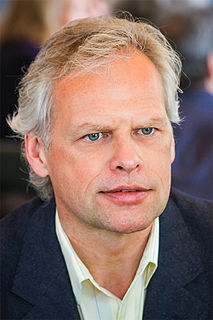A Quote by J. G. Ballard
The bourgeois novel is the greatest enemy of truth and honesty that was ever invented. It's a vast, sentimentalizing structure that reassures the reader, and at every point, offers the comfort of secure moral frameworks and recognizable characters.
Related Quotes
What is a novel? I say: an invented story. At the same time a story which, though invented has the power to ring true. True to what? True to life as the reader knows life to be or, it may be, feels life to be. And I mean the adult, the grown-up reader. Such a reader has outgrown fairy tales, and we do not want the fantastic and the impossible. So I say to you that a novel must stand up to the adult tests of reality.
The contract between the author and the reader is a game. And the game . . . is one of the greatest invetions of Western civilization: the game of telling stories, inventing characters, and creating the imaginary paradise of the individual, from whence no one can be expelled because, in a novel, no one owns the truth and everyone has the right to be heard and understood.
When you write a book, you want to have fidelity to the character. Characters and their emotions guide the structure of the novel. The author is aware that there's a certain amount of information she/he has to provide in order to satisfy the reader, knowing that she/he has set something up that must be paid off, but this payment must be made while maintaining fidelity to the characters.
I've always liked shows that have a strong cast of secondary characters. One of the greatest examples ever I would say is 'The Simpsons.' If you think about it, you could name 100 characters recognizable from that show. I think 'Scrubs' has done a good job of having a strong team coming off the bench.
The enemy of the black is not the white. The enemy of capitalist is not communist, the enemy of homosexual is not heterosexual, the enemy of Jew is not Arab, the enemy of youth is not the old, the enemy of hip is not redneck, the enemy of Chicano is not gringo and the enemy of women is not men. We all have the same enemy. The enemy is the tyranny of the dull mind. The enemy is every expert who practices technocratic manipulation, the enemy is every proponent of standardization and the enemy is every victim who is so dull and lazy and weak as to allow himself to be manipulated and standardized.
I do think some games are works of art, although their medium is visual rather than verbal. Both games and novels allow the reader/player to become a protagonist in the theater of the imagination. Both build worlds. In my opinion, the big difference between game and novel is in narrative structure. Communal role-playing games are open-plan without an end. A novel - at least the kind I write - has a closed structure with a beginning, a middle, and an end. I like that closed structure, and I feel I can say more with it.
The book is finished by the reader. A good novel should invite the reader in and let the reader participate in the creative experience and bring their own life experiences to it, interpret with their own individual life experiences. Every reader gets something different from a book and every reader, in a sense, completes it in a different way.







































